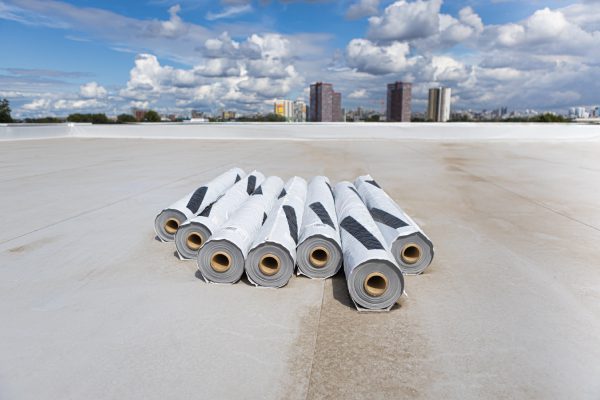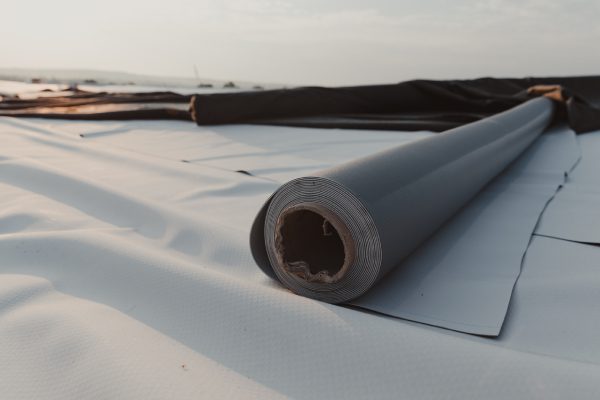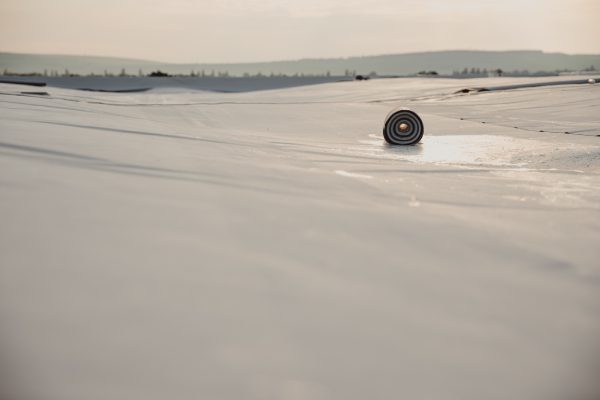What is a PVC Roof?
Polyvinyl chloride (PVC), which has been used for decades, is a durable material that’s resistant to ultraviolet rays, ozone, chemicals, tears, and puncture damage. Heat-sealed seams, a white reflective finish, and easy repairs are some features of polyvinyl chloride (PVC) membrane roofing systems. It’s made from recycled plastics, and is a very strong material that protects against fire and UV Rays.
Why PVC?
PVC is very durable and is considered one of the strongest roofing materials available. It offers protection against chemicals, water leaks, UV rays, and fire, and it is resistant to discoloration from the sun’s rays. PVC’s heat-welded seams are very strong, even stronger than the membrane itself. PVC roofing has been around longer than TPO, thus its durability and performance is more well-known than TPO. A PVC roof is also relatively easy to maintain and repair.
PVC is exceptionally strong, far exceeding the American Society of Testing and Material’s (ASTM) requirement of 200 pounds per square inch, coming in at 350 psi.
PVC roofs are known to withstand up to Category 3 Hurricane force winds, which should be sufficent for any Colorado structure.
Given PVC’s longer history than TPO, manufacturers have been able to meet current industry specifications and stabilize on quality.
As a white material, it is considered a “cool roof” for its energy efficiency. It efficiently reflects UV rays and is Energy Star rated as it reduces the load on cooling systems in the summer, performing much better than black roofs.
These benefits of PVC Roofing are why it remains a popular choice for commercial roofs.
Commerical Applications of PVC
Due to its superior resistance to chemicals, PVC is the popular choice for restaurants and other industries where grease and harsh chemicals are present.
Can a PVC Roof Be Installed Over My Existing Roof?
The short answer is yes! In most cases, this is possible, and it will save you money.
Considerations of a PVC Roof
While the labor for PVC and TPO roof installations is fairly comparable, PVC is more expensive than a similar TPO or EPDM option. As with any flat roof, standing water, also called ponding water, is a concern, so correct drainage is an important part of the installation. A qualified flat roofing contractor, such as Prime Roofing, is your best bet for a PVC roof.
Regular inspections and maintenance are vital to maintaining the integrity of your flat roof. We recommend inspections in the late spring and early fall to find and repair any issues of concern before costly damage occurs to the building.
How long should a PVC roof last?
A professionaly installed and maintained PVC Roofing System should last about 20-30 years.




